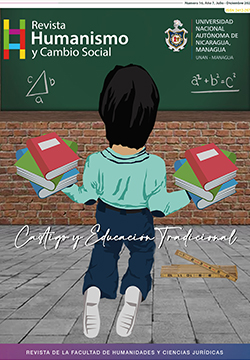Análisis del crecimiento de los negocios informales en Nicaragua
DOI:
https://doi.org/10.5377/hcs.v0i16.10484Palabras clave:
Informalidad, comercio, informalidad laboralResumen
El comercio informal es definido como una actividad progresista establecida en diferentes lugares de la sociedad, sin tener un establecimiento específico para realizar sus ventas, ubicándose en lugares estratégicos de las ciudades. Según análisis de las determinantes de la informalidad laboral en América Latina, se establece que el 47% del empleo es informal. Este panorama permite analizar la relación entre los factores que motivan la informalidad en los negocios y la convivencia social que se genera en los municipios de Estelí, Chinandega, Ciudad Sandino y Tipitapa como referencias para este análisis. Estos municipios tienen en común el comercio como una de sus actividades principales, también son municipios con densidad poblacional alta sobre todo en la zona urbana, condición favorable para el establecimiento de negocios ya que se cuenta con una mayor demanda. El Gobierno de Nicaragua ha implementado una serie de programas y acciones que tiene como lógica estratégica facilitar la generación de nuevos emprendimientos, mejorar la calidad de los existentes y facilitar el registro de los negocios a fin de disminuir la brecha de informalidad. En Nicaragua existe una problemática de informalidad en el comercio que ha sido consecuencia de todas las etapas históricas. Los principales factores que determinan la informalidad de los negocios es el crecimiento económico desigual que genera la necesidad en un amplio sector de la población al autoempleo, altas tasas de desempleo, tramitología burocrática, falta de normas y regulaciones o leve aplicación.
Descargas
2433




